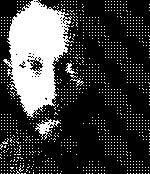
By MATT STEINGLASS
The work of Russian literary theorist Mikhail Bakhtin (18951975) has swept through academia like a successful retail chain. The "Bakhtin industry," as its members half jokingly call it, has opened franchises in the most far-flung disciplines, from literary studies to anthropology, from African-American studies to the philosophy of science. Regardless of disciplinary context, Bakhtin's name frequently connotes some kind of radical academic project.
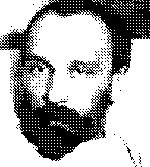
This association is not new. Almost from the moment his work first appeared in the West thirty years ago, Bakhtin was identified as a revolutionary. His notion of "carnival," for example--a conception of a liberating zone in which oppressive social norms are riotously overthrown--has provided endless fodder for progressive intellectuals, from France's soixante huitards to today's scholars of popular culture.
But even as his influence was exploding, Bakhtin himself remained something of an enigma. In the view of many Bakhtinists, especially Russian ones, he was a conservative and deeply spiritual man, the very antithesis of the revolutionary; he would have been bemused--if not appalled--by the uses to which his work has been put by contemporary academics. To make matters even murkier, scholars have long debated whether Bakhtin is the author of several celebrated works of literary theory that originally appeared in the Soviet Union under other authors' names. By 1990, this "disputed texts" controversy had become the most hotly contested topic in Bakhtin studies, drawing into its nexus a host of ideological oppositions: between structuralists and humanists, neo-Marxists and anti-Marxists, postcolonial multiculturalists and academic conservatives, and the Western and Russian Bakhtinian communities as a whole.
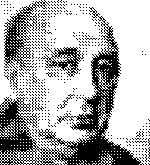
AT THE center of the controversy are three books published in the late 1920s and officially credited to Bakhtin's associates. Two titles, Marxism and the Philosophy of Language and Freudianism: A Critical Sketch, appeared under the name Valentin Voloshinov, and a third, The Formal Method in Literary Criticism, under the name Pavel Medvedev. All three books explicitly declare themselves works of Marxist scholarship. At the same time, all three are rife with Bakhtinian concepts and turns of phrase. There is an obvious explanation: Medvedev and Voloshinov, both well-connected Marxist critics, were friends of Bakhtin's. But from the time the books appeared, rumors circulated in Russian academic circles that Bakhtin himself was the author of all three books. According to this theory, the Russian scholar, who was short of money at the time, convinced his friends to let him use their more politically viable names to get into print.
To many of his admirers, the idea that Bakhtin may have authored some avowedly Marxist works hardly comes as a shock. But among Bakhtinists, there is a solid consensus that he was never a Marxist in any sense of the word. None of the major works published under his own name adopts an explicitly Marxist stance or makes significant use of Marxist terminology; and there is a good deal of evidence that he disliked Marxism in general. Perhaps most importantly, a recurring theme in all of Bakhtin's writings is his opposition to totalizing ideologies of any kind. In the Soviet context, Marxism was the very definition of a totalizing ideology.
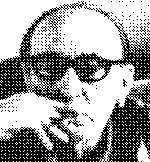
Could it be that several key texts of Marxist literary theory were in fact written by a foe of Marxism? In the case of one of the disputed books, Marxism and the Philosophy of Language, the question is particularly germane. This text is taught in literary theory classes across the country--often as one of the first and most important Marxist forays into linguistics. ("One of the best general introductions to linguistic study as a whole," the theorist Fredric Jameson has called it.) If Bakhtin wrote the book, then its Marxist passages--ones in which the author declares that his purpose is "to bring out the position that the philosophy of language occupies in the Marxist world view"--are probably not what they seem. They may be obligatory or even parodic. But does this matter? If the book can be integrated into a Marxist worldview, should it be, regardless of its author's convictions? Does it matter whether the author meant what he was saying? The disputed-texts controversy keeps forcing Bakhtinists to confront that most perplexing of theoretical questions: What does it mean to "mean"?
A document without a signature, obligating
no one and obliged to nothing.Bakhtin,
"Toward a Philosophy of the Act"
The disputed-texts conflict first erupted into
the public view almost thirty years ago, at a birthday party. On November
25, 1970, a group of scholars convened in the Laboratory for Computer Linguistics,
inside the vast, Stalinist-Gothic skyscraper of Moscow State University,
to celebrate Bakhtin's seventy-fifth birthday. Tea was drunk; cake was eaten;
papers dedicated to Bakhtin were read aloud.
In the third of these papers, the prominent literary critic Vyacheslav V.
Ivanov dropped a bombshell. In the published version of Ivanov's remarks,
his revelation formed the 101st and final footnote:
The basic texts of [the disputed works] are by
M.M. Bakhtin.... V.N. Voloshinov and P.N. Medvedev, under whose names they
were published, made only small insertions and changes in particular parts....
That all the works belong to the same author, which is confirmed by the
testimony of witnesses, is evident from their very texts, as one may easily
convince oneself by the quotations presented.
The maddening inexactitude of Ivanov's footnote
is typical of the whole disputed-texts affair. Who are these "witnesses"
with their "testimony"? And why were they needed in 1970, when
Bakhtin was still alive and available to answer questions? Why all the mystery
and intrigue?
To answer these questions, one must understand Bakhtin's position in Soviet
literary culture at the time. By 1970 he had become one of the leading lights
of Russian literary criticism after a career whose plot, some would say,
resembled a Russian skazka, or fairy tale, for all of its improbability.
Bakhtin graduated from the classics department of what was then Petersburg
University in 1918, the first year of Soviet power. During those first chaotic
years after the revolution, he led a freewheeling creative life in the towns
of Nevel and Vitebsk, where the cream of Russia's artistic and intellectual
world--Malevich, Chagall, El Lissitzky--had taken refuge from the hunger and
confusion of civil war. Bakhtin and his circle of friends debated God and
socialism, wrote articles whenever possible, and sat up late at night engaging
in prolonged, tea-drenched philosophical discussion. Among these friends
were Voloshinov and Medvedev.

Bakhtin returned to the newly renamed Leningrad in 1924 to find a city devastated by war and recession. It was difficult for him to get work. He had few connections, and very little money; his wife resorted to making stuffed animals to supplement their income. To make matters worse, Bakhtin was suffering from osteomyelitis, a bone disease that eventually necessitated the amputation of one of his legs. It was during this lean period that he allegedly published books and articles under the names of his well-connected friends Voloshinov and Medvedev, who by the late 1920s were well on their way to becoming full-fledged members of the Party intellectual establishment.
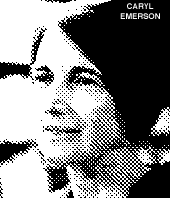
Whatever else he may have written during this period, we know that Bakhtin completed one major project under his own name: Problems of Dostoevsky's Creative Art, a book in which one would be hard-pressed to find a Marxist impulse or argument. By late 1928, the book had been accepted for publication, but Bakhtin's timing could not have been worse. At the end of that year, there was a crackdown on the circle of religious intellectuals with whom he had been loosely connected. On Christmas Eve--January 6, in the Russian Orthodox tradition--Bakhtin was arrested and sentenced to ten years' exile in the far north. But fate intervened: His book came out in the spring and was favorably reviewed by the Commissar of Enlightenment, the relatively open-minded Anatoly Lunacharsky. This review, along with Bakhtin's worsening health, convinced the authorities to commute his sentence to a six-year term in the milder climate of Kustanai, in Kazakhstan.
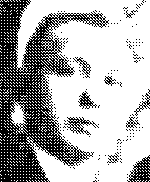
IN the USSR, 1930 was a turning point. In the 1920s, there was some measure of economic pluralism and cultural freedom; after 1930, the iron fist closed. Forced collectivization ensued, accompanied by a monolithic cultural conservatism and the elimination of the last remnants of political dissent. As the Stalinist night set in, Bakhtin vanished into obscurity.
Thirty years later, in the midst of the Khrushchev cultural thaw, a trio of young literature students at the Gorky Institute came across Bakhtin's book on Dostoevsky. The students were impressed and fascinated by the book but assumed that its author, like so many intellectuals of his generation, had long ago met his end in a labor camp or Siberian frontier town. They were amazed to discover that Bakhtin was alive and leading a comfortable life as a literature professor in Saransk, four hundred miles east of Moscow, at an institution with a name straight out of a Peter Sellers movie: the Ogarev University of Mordovia. The three students at the Gorky Institute struck up a correspondence with Bakhtin. Soon, they were visiting the master in his remote retreat and coaxing him to organize the voluminous notes and written fragments he had amassed over the years into coherent, publishable form. Bakhtin's three rediscoverers were determined to drag him back into the center of Russian intellectual life.
They succeeded handily. Largely as a result of their efforts, Russia in the 1960s experienced a tremendous Bakhtin vogue. His book on Dostoevsky was substantially revised and republished as Problems of Dostoevsky's Poetics in 1963. Two years later, Bakhtin's doctoral dissertation on Rabelais, which he had defended in the mid-1940s, appeared in an adapted form as The Work of François Rabelais and Folk Culture of the Middle Ages. In 1968, on the strength of an English translation of this book, Bakhtin's fame spread to the West. The international cult of Bakhtin was born.
Yet Bakhtin's global celebrity hardly jibes with the picture of the retiring scholar painted by his admirers in these years. He was an absentminded and impractical philosophizer, without personal ambition, deeply egalitarian, a man whose great desire in life was to sit up drinking tea and discussing Dostoevsky with his friends. From his devotees, we have an account of Bakhtin, in the late 1930s, gaining a commission to write an article for the Soviet Literary Encyclopedia, only to have it go unpublished because his entry--on satire--had the misfortune to fall into the same volume as an entry on Stalin, and therefore proved too sensitive for release. Then there is the story about Bakhtin in the winter of 1941 using the air-dropped propaganda leaflets of the advancing Nazis as texts for students in his German language classes. Most famously, we have Bakhtin, short of rolling paper for his cigarettes, smoking away the entire manuscript of his work on the bildungsroman. It has been suggested that some of the more vivid episodes in Bakhtin's life may be a bit apocryphal, the result of his own storytelling impulse and a hagiographic desire on the part of his devotees. And yet, who knows? It was a strange century the Russians had.
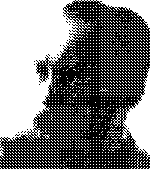
AT THE time of his birthday party in 1970, rumors concerning Bakhtin's authorship of the disputed texts were again in circulation--fomented by a few surviving veterans of the Leningrad literary scene of the 1920s. But no one had made the claim public because, whenever Bakhtin was confronted on the matter, he refused to speak for the record. Why, then, did Ivanov decide to bring the claims out into the open?
The answer is clear enough: Ivanov was embroiled in a vicious literary quarrel and needed Bakhtin on his side. Bakhtin's status as the grand old man of Russian letters, the voice of the pre-Stalinist past, made him a strategic prize in the main conflict in Russian literary criticism of the period. This dispute had little to do with attitudes toward Marxism; instead, it revolved around attitudes toward structuralism.
The two camps in this struggle were known as the "physicists" and the "lyricists." The physicists included Yuri Lotman, Lydia Ginzburg, and the Estonian-based Tartu School of structuralism, which had risen to prominence in the 1960s. These scholars conceived of literature in terms of its internal systems of signs and codes, and in the post-Stalinist Soviet Union, this seemingly impartial methodology had the advantage of appearing to avoid the dangers of more overtly ideological criticism. The physicists also had a respected pedigree: They were considered heirs to the much-admired Russian formalist tradition of the 1910s and 1920s. Ivanov was a physicist.
The lyricists, on the other hand, were a group of vaguely humanist literary critics; during the 1960s, some members veered toward religious nationalism--the same cultural wave that produced Aleksandr Solzhenitsyn. Among the main exponents of this antistructuralist, religious-nationalist thought was one of Bakhtin's Gorky Institute disciples, Vadim Kozhinov. Attracted to Christian themes in Bakhtin's work--such as his discussion of the "word made flesh," in which Kozhinov perceived the influence of medieval Russian mystics--he eagerly pored over the master's unpublished manuscripts. He used his access to this material to quote Bakhtin selectively in his polemics against structuralism.
Undaunted, the physicists maintained that Bakhtin was much closer to structuralism and semiotics than his lyricist devotees would allow. Finally, Ivanov responded to Kozhinov's quotation-citing tactics in kind. In the opening two pages of his essay, Ivanov quotes from the disputed texts eleven times, and almost every citation contains the words "semiotic" or "sign." When Ivanov openly attributed the disputed texts to Bakhtin, he did so in order to deal his opponents a decisive blow.
But the lyricists were unfazed. In fact, they accepted Ivanov's revelation. To some extent, in their desire to promote Bakhtin's legacy, the lyricists may have wanted to attribute everything intelligent written in the 1920s to him. But on a more practical level, the disputed texts, while employing much semiotic terminology, happen to be highly critical of the formalists in ways that can be used to polemicize against structuralism as well. The lyricists were just as happy as the physicists to attribute these texts to the master. By the late 1970s, there was a broad consensus in Russia that Bakhtin had written the disputed texts.
Contexts of usage for one and the same word often
contrast with one another. The classical instance of such contrasting contexts
of usage for one and the same word is found in dialogue. In the alternating
lines of a dialogue, the same word may figure in two mutually clashing
contexts. Of course, dialogue is only the most graphic and obvious instance
of varidirectional contexts. Actually, any real utterance, in one way or
another or to one degree or another, makes a statement of agreement with
or a negation of something. Contexts do not stand side by side in a row,
as if unaware of one another, but are in a state of constant tension, or
incessant interaction and conflict.
Voloshinov, Marxism and the Philosophy of Language
In recent years, by far the most influential of Bakhtin's concepts has been
his notion of "dialogue." Bakhtin argued that every utterance--a
wink, a book, a painting--is intended for a particular audience and therefore
part of an ongoing dialogue, a shared social context. This is the gist of
his argument with formalism and structuralism: An utterance cannot be understood
only with reference to its structure; it must be seen in the context of
other utterances to which it responds. Bakhtin believed that the dialogic
nature of language finds its apotheosis in Dostoevsky's novels, where, as
he put it, "No word is without its intense sideward glance at someone
else's word."
In The Brothers Karamazov, for example, Bakhtin traces how Ivan Karamazov's
internal dilemmas are affected by his discussions with the book's other
characters. Ivan is not sure he believes that "all is permitted";
he raises the idea with the Christian fathers at the local monastery in
the hopes of provoking an angry response. But Ivan proposes the same idea
to the canny but unsophisticated servant Smerdyakov, who interprets it as
a subtle invitation to kill Ivan's father--which he eventually does. For Bakhtin,
Ivan's interactions with others and the various effects they produce are
dramatic illustrations of the way a statement's meaning is transformed as
it passes from one dialogic context to another.
In a similar fashion, the terms of the disputed-texts controversy shifted
radically as it passed from the Russian context to the Western one. In the
West, it soon became a dispute about Marxism.
